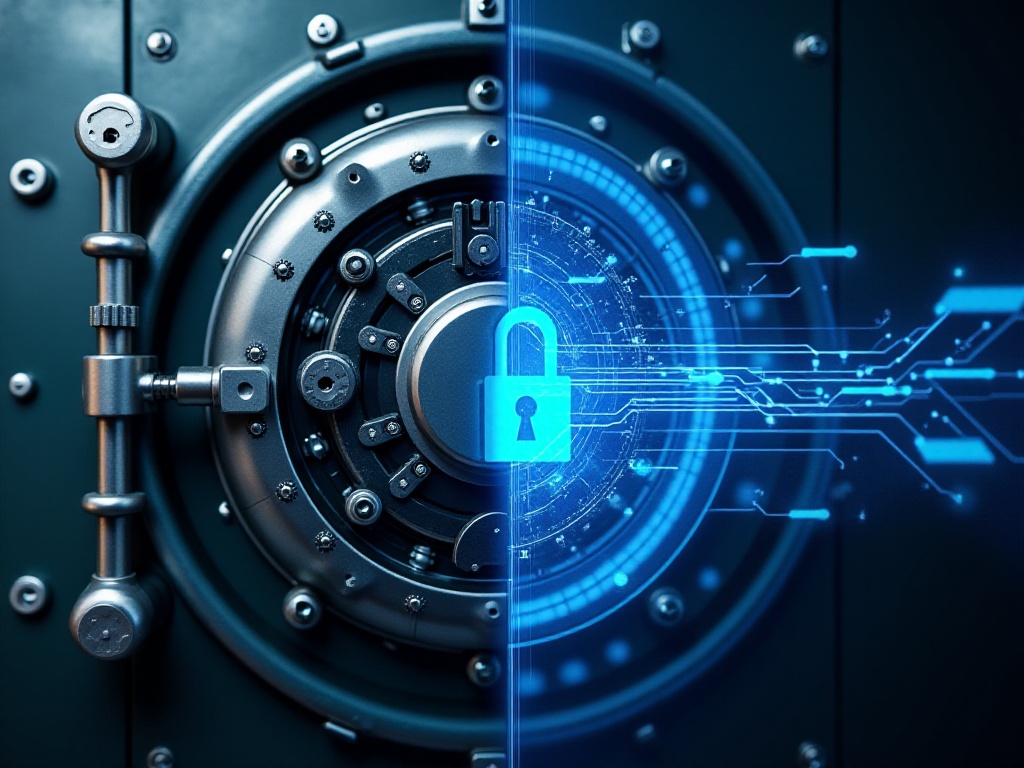

Introduction
Hello everyone! I'm a veteran crypto investor. Recently my inbox has been flooded with messages from many friends asking about secure cryptocurrency storage. With Bitcoin hitting new highs, it's clear that many newcomers are entering the market. As someone who has experienced the 2017 bull market, 2018 bear market, and witnessed dramatic market fluctuations since 2020, I'd like to share detailed advice on how to protect your crypto assets.
Honestly, it pains me every time I see newcomers suffer losses due to insufficient security awareness. After all, everyone starts as a beginner, right? When I first entered crypto, I made many mistakes that still make me nervous to think about. So in this article, I'll share as much of my experience and lessons learned as possible, hoping to help more newcomers avoid pitfalls.
Security Basics
Many crypto newcomers think cryptocurrency security is mysterious and complex, but there's no need to overcomplicate it. Simply put, it's about protecting your digital assets from tampering. It's like protecting physical property, just with more digital and technical methods.
For example, if you have valuables at home, you'll install security doors, surveillance cameras, and maybe even buy insurance, right? The same principle applies in the digital asset world - we need various measures to ensure asset security.
I'll never forget the painful experience of a friend I met last year. He worked in tech and was technically competent, but due to a moment of negligence regarding security, he stored his private keys on a networked computer. His computer got infected with malware, and hackers transferred away his Bitcoin worth $500,000. Worse still, due to blockchain's irreversible nature, that money could never be recovered.
This lesson not only caused him huge financial losses but also dealt a major psychological blow. He told me he couldn't sleep at night for a while, constantly visualizing his losses. That's why I always say security awareness must be the top priority in crypto - this is no joke.

Private Key Management
When discussing cryptocurrency security, we must focus on private key management. For beginners, private keys may be an unfamiliar concept. But it's truly crucial because in the crypto world, your private key is your "master key."
I like comparing it to bank account passwords. However, private keys are over 10,000 times more important than bank passwords. Why? Because if you forget your bank password, you can reset it at the bank, and if you lose your bank card, you can get a replacement. But if you lose your private key, your cryptocurrency is gone forever. That's why we must take private key management extremely seriously.
According to Chain Security Technology's 2024 "Blockchain Security Situation Report," over 60% of all cryptocurrency theft cases involve private key leaks. This statistic is frightening but demonstrates the importance of private key management.
So how should we manage private keys? First, never store private keys online, including in cloud storage or email. I know some people find this convenient for checking anytime, anywhere. But convenience and security often conflict, and in this case, security must take priority.
Second, I recommend using multiple backups. For example, you can split your private key into several parts and store them in different secure locations. I personally maintain three backups: one written on waterproof paper sealed in a safe, one encrypted on an offline hard drive, and one memorized. This way, if one backup fails, others are still available.
Another important tip is never share your private key with anyone, even those you trust most. There's a famous saying in crypto: "Not your keys, not your coins." This is absolutely true - whoever has the private keys controls the assets.

Wallet Selection
After discussing private key management, let's talk about wallet selection. This is probably one of the most important concerns for beginners. After all, your wallet is like your bank account, and choosing a good wallet is crucial for asset security.
Let's start with software wallets. These wallets are most convenient to use, and many are free. If you're just starting and investing small amounts, like a few thousand dollars, a software wallet is perfectly adequate. But be careful when choosing software wallets - I recommend only selecting those with large user bases and high reputation.
According to recent industry statistics, the top 10 cryptocurrency wallets globally in 2023 had a security incident rate of less than 0.1%. What does this data tell us? It shows that mainstream wallets that have been market-tested are relatively reliable in terms of security.
However, if you're like me with larger investments, I strongly recommend using hardware wallets. While hardware wallets are less convenient than software wallets and require purchase, they're much more secure. Well-known hardware wallet brands like Ledger and Trezor follow very strict security standards.
Here's a real statistic: according to industry data, users of hardware wallets have a 97% lower chance of asset theft compared to online wallet users. This is a huge difference. The reason is simple - hardware wallets are offline, so hackers can't infiltrate them through the internet.
I currently use hardware wallets from two brands - one primary and one backup. Although I spent nearly $2,000 on these devices, it's absolutely worth it compared to the value of assets being protected.
When choosing a wallet, also note which cryptocurrencies it supports. Some wallets might only support mainstream coins like Bitcoin and Ethereum. If you want to invest in lesser-known tokens, verify wallet support in advance.
Also important is the wallet's backup and recovery functionality. Good wallets provide seed phrases - 12 or 24 English words that can recover your assets if your wallet is lost or damaged. These seed phrases must be protected just like private keys.

Daily Protection
After wallet selection, let's discuss daily usage precautions. These points might seem trivial, but they're based on real experience.
First and most importantly: never put all your eggs in one basket. I usually divide assets into three parts: active funds, savings funds, and emergency backup. Active funds for frequent trading go in hot wallets; savings funds for long-term holding go in cold wallets; emergency backup goes in a separate cold wallet.
According to Chain Security's latest security report, users who adopt cold/hot wallet separation strategies improve their asset security factor by over 80%. This data is telling. Even if one wallet has issues, assets in other wallets remain safe.
Second, develop a habit of regular asset checks. I usually check all wallet assets weekly for any unusual transfer records. This helps detect problems early and maintains clear awareness of your investments.
Third, be especially careful of phishing websites. Many scams now involve fake exchanges or wallet websites. Their pages might look identical to real sites, but once you enter your private key or seed phrase, your assets will be transferred away. I recommend bookmarking frequently used sites rather than accessing them through search engines.
Another important point is regularly updating wallet software. Updates usually fix security vulnerabilities, so don't ignore update notifications.
Be extra careful when using public WiFi. Avoid any operations involving private keys or seed phrases on public networks. If you must operate, use a VPN encrypted connection.
Phone and computer security is also important. Install antivirus software and update system patches promptly. Many cryptocurrency thefts occur because devices are infected with trojans or viruses.

Risk Response
After daily protection, let's discuss handling risks. In crypto, risks are everywhere, so knowing how to handle various emergencies is important.
First, if you notice unusual transfers from your wallet, act immediately. Step one is quickly moving remaining assets to a secure new wallet. Don't hesitate or hope for the best - address problems immediately.
According to DeFi Security Alliance statistics, users who take action within 30 minutes of detecting anomalies recover over 70% of assets on average. What does this data show? In security incidents, response speed is everything.
Second, if you discover device compromise, disconnect from the internet immediately and create new wallets using other devices. Don't perform any operations on compromised devices, as hackers might monitor every action.
Another scenario is wallet software malfunction. Don't rush to uninstall and reinstall - first ensure your private key or seed phrase backups are complete. These are needed to restore assets after reinstallation.
If hardware wallets have issues, like not powering on or displaying abnormally, don't panic. As long as you have your seed phrase, you can buy a new hardware wallet and import the seed phrase to recover assets. This is why I always emphasize properly securing seed phrases.
When handling risks, another crucial point: don't easily trust "security experts" or "customer service." Many scams involve fake customer service claiming they can recover stolen assets, actually trying to get your private keys or seed phrases. Remember, in cryptocurrency, no one can recover lost assets for you.

Closing Thoughts
At this point, how much new understanding do you have about cryptocurrency security? After all this discussion, the core point is: in the blockchain world, you are your own bank, and security responsibility lies entirely with you.
Reflecting on my years in crypto, I've experienced many ups and downs. But what strikes me most is that regardless of market fluctuations, security always comes first. Without security guarantees, even high returns can vanish overnight.
I believe after reading this article, you have a clearer understanding of how to protect your crypto assets. Remember, security awareness isn't optional - it's a basic required quality. In this rapidly developing crypto world, only with sufficient security awareness can you truly protect your wealth.
If you found today's content helpful, welcome to share your thoughts and experiences in the comments. Everyone's experience is unique, and sharing helps us all improve. Next time we'll explore the latest DeFi security trends - see you then!






 Français
Français Deutsch
Deutsch Русский
Русский Português
Português Español
Español Italiano
Italiano Türk
Türk
